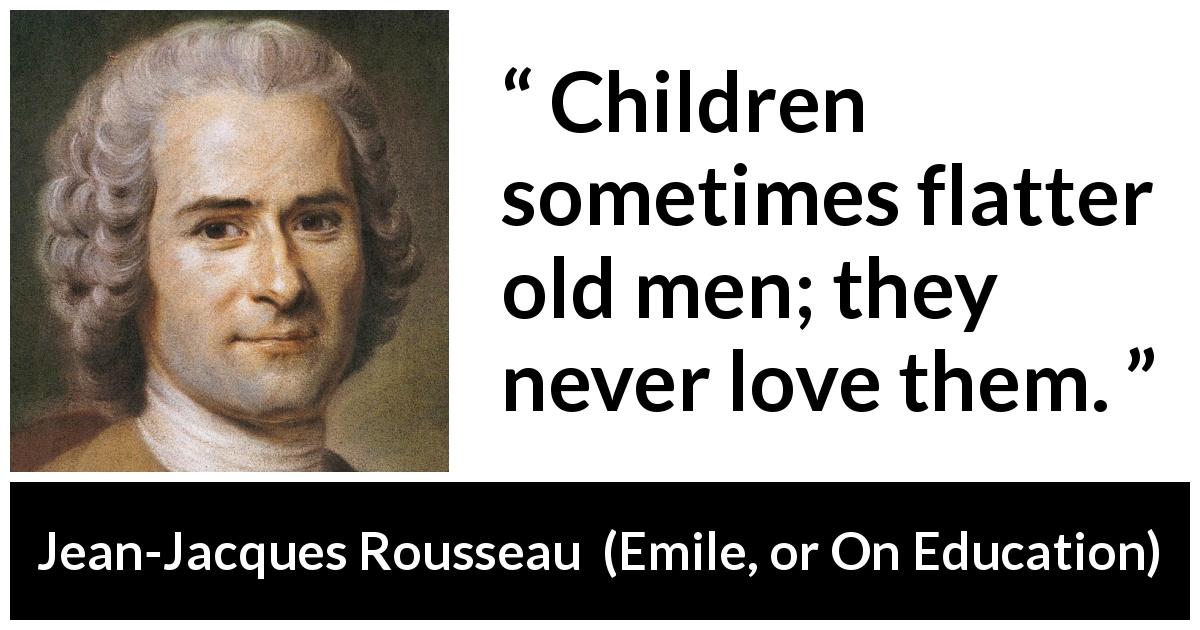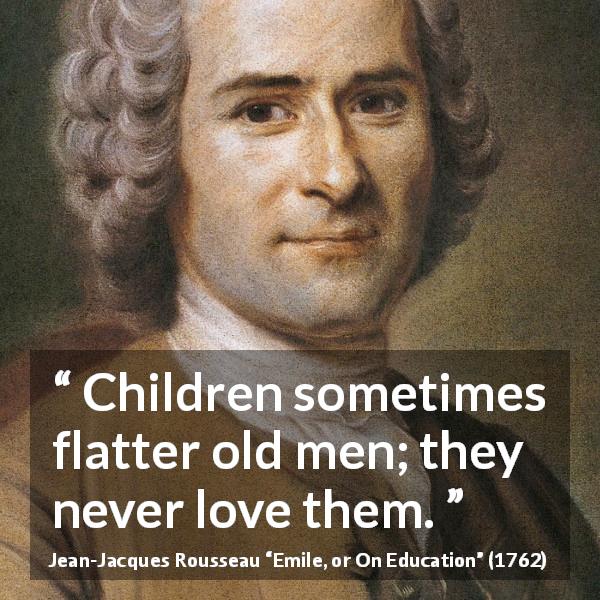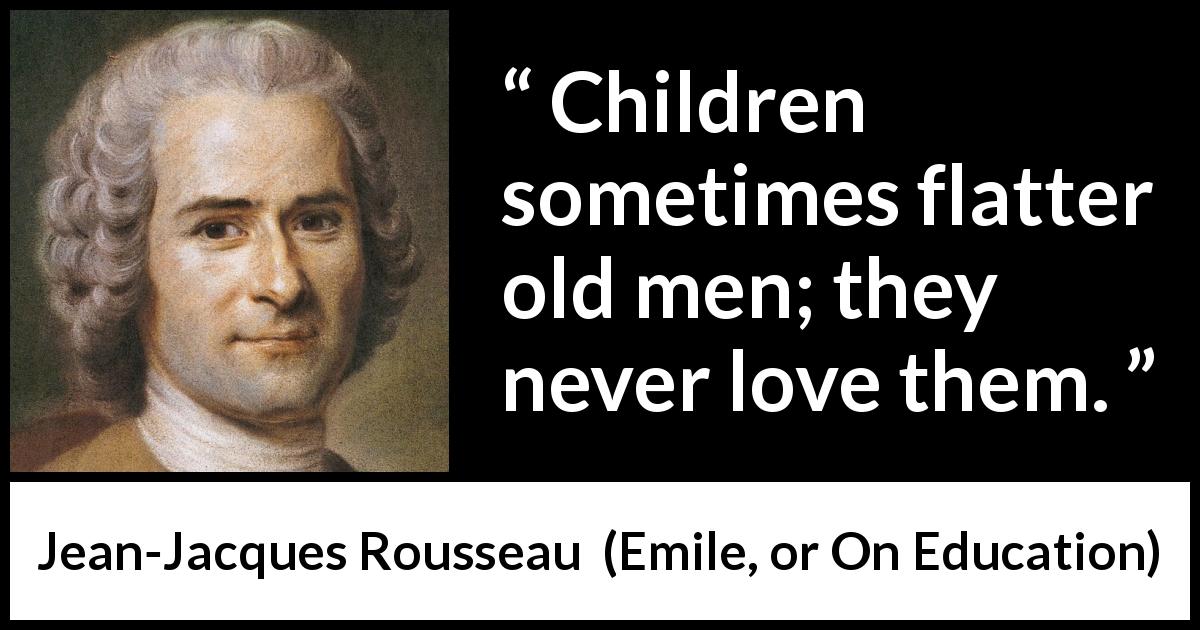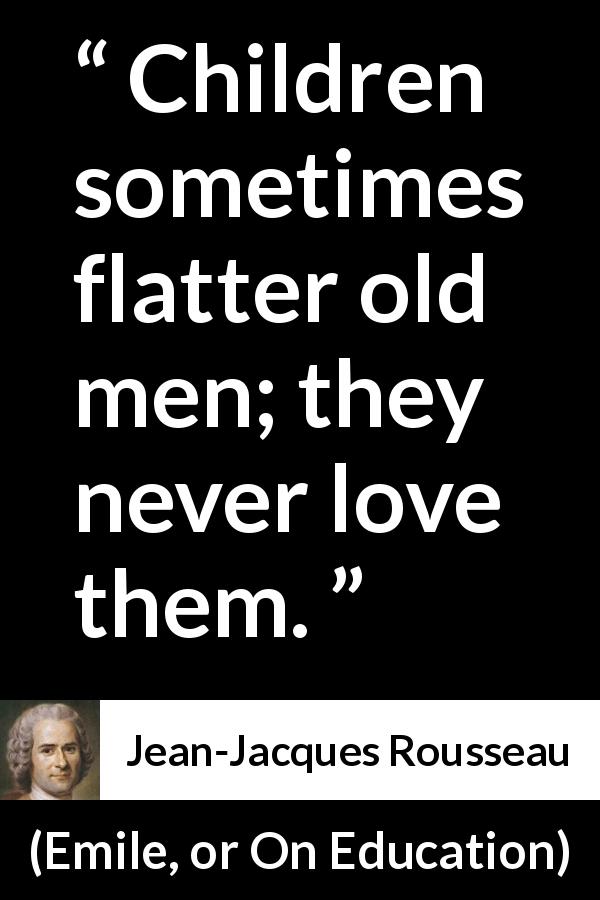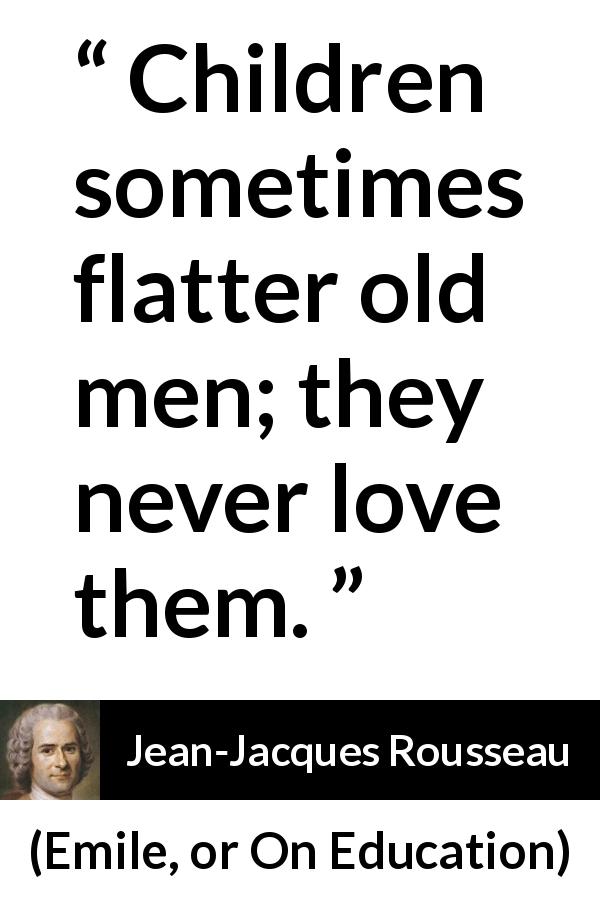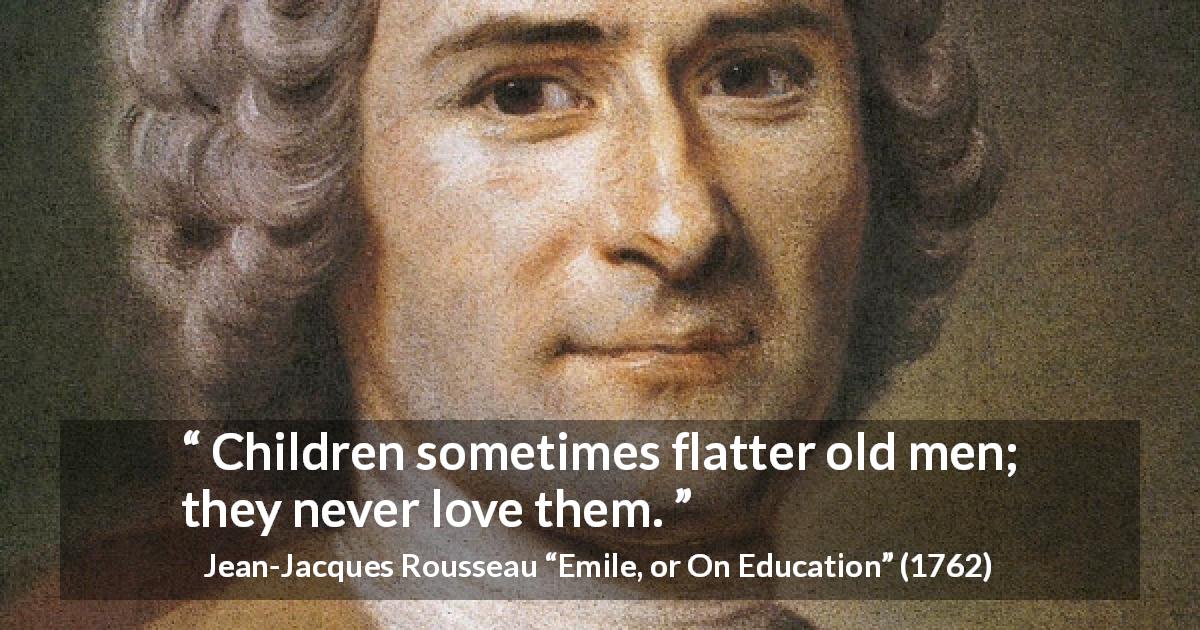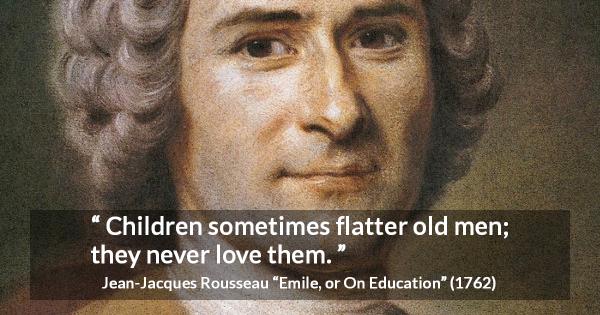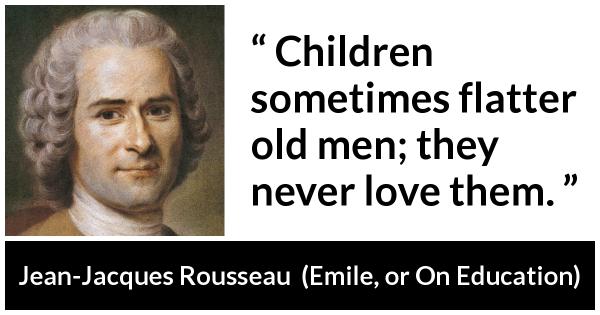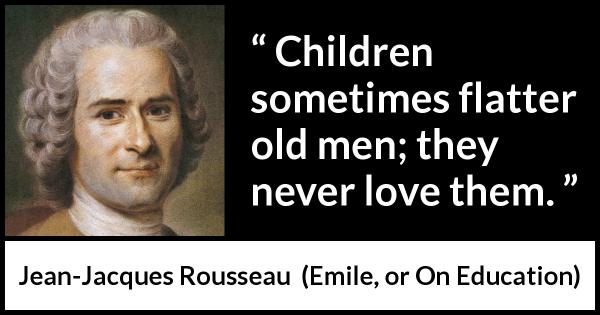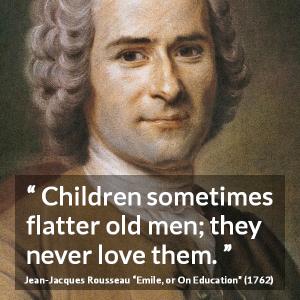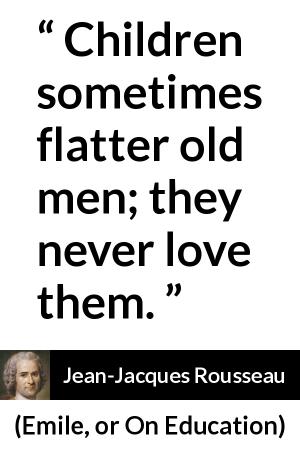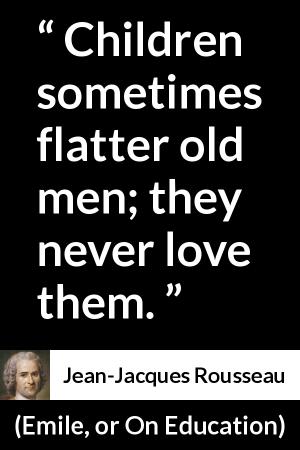“ Children sometimes flatter old men; they never love them. ”
Jean-Jacques Rousseau, Emile, or On Education (1762). copy citation
| Author | Jean-Jacques Rousseau |
|---|---|
| Source | Emile, or On Education |
| Topic | children elders |
| Date | 1762 |
| Language | English |
| Reference | |
| Note | Translated by Barbara Foxley |
| Weblink | http://www.gutenberg.org/cache/epub/5427/pg5427-images.html |
Context
“Were it possible, he should become a child himself, that he may be the companion of his pupil and win his confidence by sharing his games. Childhood and age have too little in common for the formation of a really firm affection. Children sometimes flatter old men; they never love them.
People seek a tutor who has already educated one pupil. This is too much; one man can only educate one pupil; if two were essential to success, what right would he have to undertake the first? With more experience you may know better what to do, but you are less capable of doing it; once this task has been well done, you will know too much of its difficulties to attempt it a second time—if ill done, the first attempt augurs badly for the second.” source
People seek a tutor who has already educated one pupil. This is too much; one man can only educate one pupil; if two were essential to success, what right would he have to undertake the first? With more experience you may know better what to do, but you are less capable of doing it; once this task has been well done, you will know too much of its difficulties to attempt it a second time—if ill done, the first attempt augurs badly for the second.” source
Original quote
